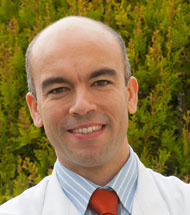Gabriel Reina González, Professor of the School of Pharmacy and Nutrition and microbiologist of the Clínica Universidad de Navarra and IdiSNA
Superbugs are not science fiction
 The 20th century left us with many historic moments. One of them, undoubtedly, was the finding of penicillin -at position by Alexander Fleming- and many other antibiotics. Today, November 18, European Day for the Prudent Use of AntibioticsIt is worth remembering that these drugs have saved millions of lives, have contributed to the progress of medicine and have made it possible to increase life expectancy.
The 20th century left us with many historic moments. One of them, undoubtedly, was the finding of penicillin -at position by Alexander Fleming- and many other antibiotics. Today, November 18, European Day for the Prudent Use of AntibioticsIt is worth remembering that these drugs have saved millions of lives, have contributed to the progress of medicine and have made it possible to increase life expectancy.
However, at the time of receiving his well-deserved award Nobel Prize, Fleming already anticipated that it was not difficult to obtain bacteria resistant to penicillin, as has ended up happening. The employment of each new antibiotic has been accompanied, in more or less time, by the appearance of resistant bacteria. This "tragedy" from the medical point of view is due to the particular biology of these microorganisms, which allows rapid selection of antibiotic-resistant variants. This selection is even more effective if we use them inappropriately, as when we abandon the prescribed treatment prematurely. We then allow the microorganisms to survive and spread to other environments or other people.
This capacity to react and adapt means that we are increasingly encountering infections caused by multidrug-resistant bacteria, or "superbugs", against which there are no effective antibiotics. In fact, infections caused by antibiotic-resistant bacteria cause 700,000 deaths worldwide every year (2,500 in Spain). These infections also mean longer hospital stays and more expensive treatments, with an annual cost overrun of 150 million euros in Spain alone. And by 2050 this phenomenon of selection and dissemination of resistant bacteria could cause up to 10 million deaths worldwide. Even more than cancer.
Due to the seriousness of the problem, in 2016 the UN hosted the signature of a globalagreement in the face of antibiotic resistance. It was the fourth time in its history - after HIV/AIDS, non-communicable diseases and Ebola - that a health topic was debated in a General Assembly, which speaks volumes about its significance and the need for urgent action.
These measures require the involvement of the whole of society to put an end to certain widespread practices, such as taking antibiotics to combat viral infections subject flu or cold, since in doing so we provoke, once again, the strengthening of bacteria. According to Rafael Cantón (former president of the Spanish Society of Infectious Diseases and Clinical Microbiology) this internship causes more deaths in Spain than traffic accidents and continues to increase thanks to self-medication or the taking of antibiotics stored or acquired without prescription. Likewise, among medical professionals a continuous training is necessary to individualize therapy and avoid 30-40% of unnecessary prescriptions, motivated in many cases by the pressure of the patient, who is unaware of the magnitude of this tragedy, as was demonstrated in the 2016 Eurobarometer.
As published in this European survey , 46% of the almost 30,000 respondents incorrectly thought that antibiotics were active against viral infections such as influenza or colds. In addition, the study confirmed that Spain was the second country in the Union with the highest consumption of antibiotics, both in humans and at veterinary level, which again has an impact on the proliferation of superbacteria that reach our body through food.
Precisely the goal of this European Day for the Prudent Use of Antibiotics is to invite reflection on the consumption of these drugs, and to better understand how they work in order to extend their useful life, while the research continues for the development of new active molecules that can deal with superbugs.
Convinced of this, we at the University of Navarra have joined this campaign with information tables in several buildings at campus.
Spreading the culture of antibiotic use manager among the public is essential to curb the problem. Just by changing a few simple gestures -such as washing hands, getting vaccinated (especially against influenza) or completing the treatments prescribed by the doctor- we would achieve extremely useful preventive strategies. Applying them is now in everyone's hands.
